Fisheries and Aquaculture in West Cork
Humans have always enjoyed a culture of fishing, relying on the marine environment as a source of food.
Aquaculture is the farming of aquatic plants and animals, including fish, shellfish and seaweed, in any aquatic environment including rivers, lakes or seawater. Mariculture refers specifically to the farming of aquatic organisms whose habitat is the sea.
Aquaculture and mariculture have become more common in recent years. This is due to an increasing demand for fish products globally. The West Cork coast has not escaped this worldwide trend.
Increased Demand for Seafood
As the world’s population continues to rise, with it comes an increased demand for seafood. This puts pressure on the marine environment in a number of different ways as discussed in our literature review. There is an increasing concern about how current fishing practices might be sustained.
We discussed the West Cork fishing industry with people from the local community, to understand how some of these global issues might be affecting their maritime environment.
An industry in Decline
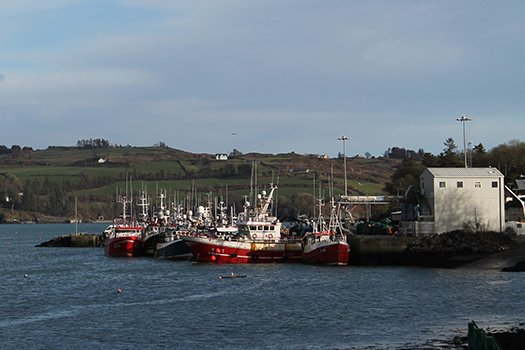
Everyone we spoke to regretted the decline of the fishing industry in Ireland, contrasting today’s fishing industry with a more vibrant past. ‘It’s a completely different world, you couldn’t compare it’ remarks Neill Clarke, a resident of Bantry.
Most people blamed the decline on the government. Cape Clear fisherman, Pat Con Ó Driscéoil, comments that
For some reason the department always hated fishing. If you go back to the foundation of the state, fishing was big. Lady Coutts helped fishermen…By the time the Second World was started in 1939 there were no boats. They had to be broken up.
Neill Clarke adds: ‘The pity was, I think, that when the fish was there, the government put very little money into it and didn’t really nurture the fishing, there was no investment and so it was up to the fishermen themselves to invest in the boats’.
Decreasing Fish Stocks
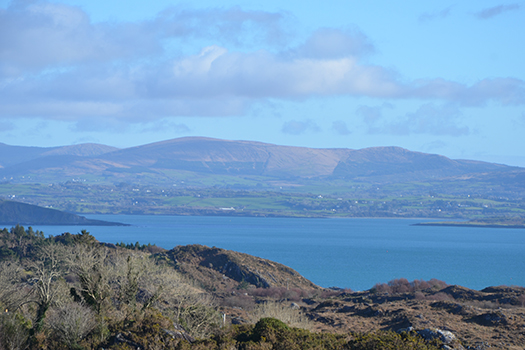
The worldwide decline in fish stocks is largely caused by over-fishing. Local fish stocks in Cork are no exception to this trend. Neill Clarke observes that formerly
…[Bantry] Bay was full of fish: mackerel, pollack and salmon, and it’s not full of fish now.
‘Salmon was great for coastal communities’ Neill remarks. ‘It was simple, because of the way it was fished.’ Before drift netting came in (which has been banned in Ireland for salmon) Clarke explains that most of the community would have caught fish, such as salmon, by seine fishing.
Once one fish jumped into the net, others would follow, often seven or eight fish, but sometimes up to twenty or thirty fish. ‘You were out in the bay, not at the mouth of the river’, he says, ‘so there was plenty of scope for fish to get in and you’d just catch a percentage of what was there, a tiny percentage really’, in this sense it was a more sustainable form of fishing.
Despite attempts to revive salmon stocks, they have not reached their previous numbers. Neill Clarke observes, ‘You can see with the salmon, there is a bit of recovery now, but it’s nothing like what it was when I was seine fishing’.
The Rise of the Super-Trawler
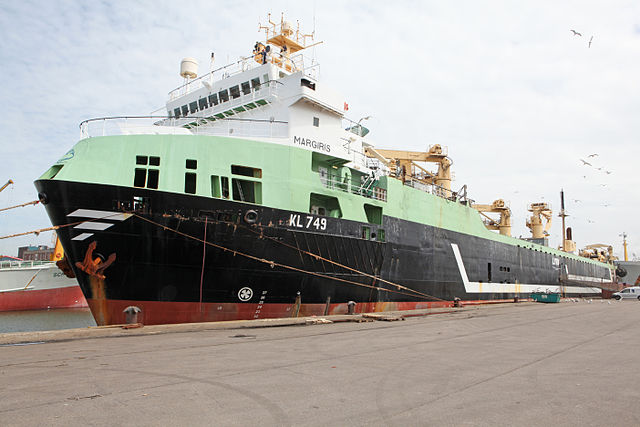
As Risteard Ó Domhnaill has highlighted in his award-winning documentary, Atlantic, a contributing factor to declining fish stocks is the rise of the super-trawler.
Local historian, Terri Kearney, remembers first observing super-trawlers off the West Cork coast: ‘These things were huge’, she says. ‘They obviously were because I could see them miles away and they looked like a city’. Neill Clarke elaborates further:
They are like mini factories on board the ship and then they sweep everything in front of them. It’s deep trawling. It’s a different world.
The super-trawlers are a more recent arrival, but trawlers have fished the West Cork coastline since the nineteenth century. Neill Clarke describes the trawlers that worked out of Bantry in the 1970s as being timber boats, between 40 and 60 feet long, with cotton nets. He explains:
They fished the bay and they fished out around the heads, but a lot of them wouldn’t have gone much further out. I remember talking to a fisherman in Castletownbere and he said…that he was never out of sight of land.
Today’s trawlers conduct most of their fishing offshore, leaving from ports such as Castletownbere. Neill Clarke explains ‘They are going out 150 miles – that’s where they have to go now for the fish’.
Some aspects of fishing have become easier, however. Pat Con Ó Driscéoil describes some of the difficulties for fishermen previously:
Getting the fish to market, that was a big problem for fishermen back in the day. They could come in with a boat load of fish and then they would have a hell of a job, each boat trying to sell its fish to dealers and agents.
Now, he explains, the fishermen ‘radio in what they’ve caught…before they come into the harbour, so it’s just a question of loading them onto the trucks and taking them away’.
Decline of Fishing Communities
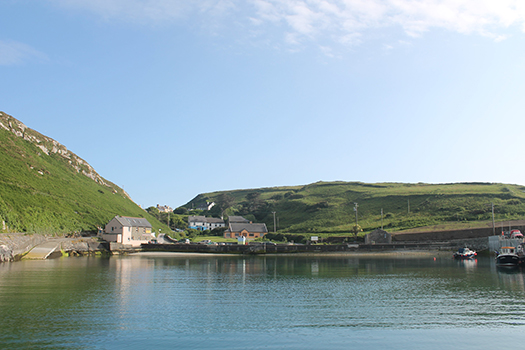
Legislation has been put in place to revive fish stocks, but some policies have forced fishing families to seek employment ashore. This is changing the social and cultural fabric of local communities.
Pat Con Ó Driscéoil describes how fishermen used to fish for cod using a half-decker and huge pots from Nova Scotia. ‘That smaller boat would be able to land here [on Cape Clear]’, he explains. However, they no longer do so, and this has had a lasting impact on Cape Clear.
This was all too evident when Angie Shanahan recently visited the island for the Blessing of the Boats:
Forty to fifty years ago the pier would have been full of boats for the blessing of the boats… but when we were there…the main boat that was there was the ferry because the fishing is more of less gone from the island. It’s such a shame really and such a tragedy to see that. I really felt it when I saw just the ferry.
Angie laments the loss of what had been a vibrant fishing industry in Cape Clear:
Fishing is more or less gone…It’s such a shame really and such a tragedy to see that.
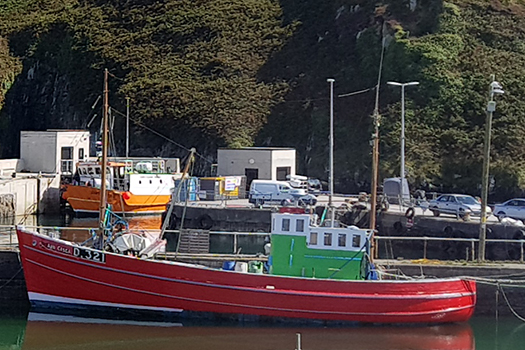
Aquaculture
Although demand for fish products is increasing, just 6% of those we surveyed valued the sea as a source of food (Deep Maps survey, 2016).
We discussed the role of aquaculture in West Cork with some members of the local community and found it generates mixed feelings.

Attitudes to Aquaculture
The industry has grown in recent years. ‘There is huge emphasis on aquaculture’, comments Paula Ní Ríogáin. Terri Kearney draws attention to the large number of mussel and oyster beds off the West Cork coast, which simply weren’t there before.
If you are going around Roaring Water Bay in a boat, you’re like ‘Where can I go?’ because there’s so many of them!
It is this scaling of the business that is of concern to some people. Paula Ní Ríogáin believes that one of the problems with the aquaculture industry is that it is ‘often outside of community level’ or centralised.
Some people we spoke to were quite positive about the burgeoning West Cork aquaculture industry. Neill Clarke comments:
There is a huge bay out there, it’s 25 miles long and it’s 5 miles wide.
In his view, because of the vast size of Bantry Bay there is plenty of room for everyone to use it, whether for aquaculture or recreational purposes.
Find Out More
Read our review of the latest scientific research on environmental priorities associated with Fisheries and Aquaculture.
Learn more about West Cork Fisheries from 1700.
Read more West Cork community perspectives on environmental priorities.

